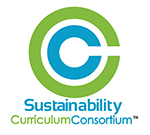 |
 |
AASHE and SCC Seek Contributions on Teaching Sustainability Competencies
As courses and programs in sustainability continue to expand in higher education, instructors are called on to develop and adopt new and innovative approaches to teaching that enable students to learn the knowledge, skills and habits of mind central to sustainability as a study and practice. Over the past decade, pedagogical research has actively sought to articulate the ‘competencies’ students should develop through sustainability education, but, in the classroom, methods vary. A joint publication of AASHE and the Sustainability Curriculum Consortium, Practical Approaches to Teaching Sustainability: Key Competencies will feature various approaches to teaching sustainability topics in the classroom, field, experiential learning environment, community, or virtual space that illustrate an emerging sustainability pedagogy. Educators may be familiar with related terminology such as ‘demonstrated capabilities,’ or ‘learning outcomes,’ to identify and assess the learning objectives that are considered a core part of student education in sustainability.
The practical approach emphasized in this publication seeks to illustrate innovative approaches to teaching that define and contextualize the learning objectives of sustainability educators. Contributions can capture sustainability education in a variety of contexts such as teaching students earning a degree in sustainability, incorporating sustainability into other related programs, or teaching sustainability across the curriculum, to name a few. Topics may include, but are certainly not limited to the following:
- how to educate students to be change agents
- campus/community-engaged learning
- inclusive pedagogies meaningful to a diverse student population
- teaching skills for sustainability careers
- fostering critical thinking in sustainability pedagogy
- how to teach systems thinking
- gaining competency through traditional Indigenous knowledge
- pedagogies addressing climate grief and anxiety
- narratives of impact on students
We are especially seeking contributions that illustrate a core element of your course or program not captured by current discussions. Share your experiences, achievements and discoveries through illustrative short narratives (2000-3000 words) that exemplify the competencies, capabilities, or learning outcomes you have found to be central to your pedagogy, and essential for the education of students. Please submit an abstract and statement of interest (maximum of 500 words) by March 22, 2021, to Rebecca Potter (rpotter1@udayton.edu), Hanley Sustainability Institute, University of Dayton.